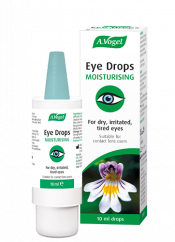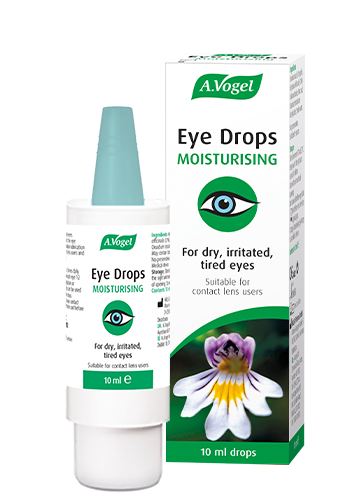How healthy are you?
Take our quick quiz to discover just how healthy your immune system is, as well as some useful information about your general health and wellbeing!
Check nowA massive 44% of adults in the UK suffer from at least one allergy, with numbers increasing year on year.1 With allergies being so prevalent, people are always looking for new and effective remedies. One possible solution lies in probiotics, something that has been given a lot of attention in recent years. Could they really help ease symptoms such as a runny nose and watery eyes, though, and is there science to back up the hype?
There is, for a number of reasons, a close link between allergies, digestion and gut health.
Digestive problems such as leaky gut, for example, can make us more prone to allergies. As you can see from the image below, leaky gut affects the structure of the gut wall. Instead of sitting tightly together, it becomes loose meaning pathogens and allergens can seep through. This overwhelms the immune system and makes it more likely to react negatively to harmless substances like pollen and dander.
In addition, there is evidence to suggest that allergies may also cause digestive problems. In response to allergens, the body releases a chemical called histamine which can cause inflammation. In some cases, this may damage the gut wall causing symptoms such as diarrhoea and constipation.

There is strong evidence to show that taking a good quality probiotic supplement could help to prevent allergies and manage symptoms.
Today many of us are living in clean environments where we aren’t exposed to a large number of germs. There has been an increase in antibacterial skin care products, for example, and people are very conscious about washing their hands often. This can lead to children having a poorly developed immune system as dealing with lots of germs not only strengthens the immune system, it means it is better prepared to deal with germs in the future too.
As a result of this, the immune system may not be able to launch an adequate response to pathogens or allergens. This theory is known as the ‘hygiene hypothesis’ and it explains why there has been an increase in allergy symptoms amongst children – as many as 40% of children are affected by allergic rhinitis.2
The hygiene hypothesis may also cause a lack of bacteria in the gut, though, which can be amended by introducing friendly bacteria to the area through probiotics. Probiotics increase the amount of good bacteria in the gut to help create a healthy environment. As I explained above, allergies are closely linked to gut health and so keeping the area working optimally can manage and prevent allergies.
Probiotics help to strengthen the gut wall so that pathogens and allergens can’t seep through and cause problems for the immune system. They may also support the immune system by teaching it the appropriate way to respond to allergens.
Probiotics affect the immune system in other ways too, though, as they may encourage the production of T-Cells. These are part of the immune response and are needed to recognise unfamiliar particles including viruses and allergens. If these are working effectively they should be able to distinguish allergens as being unproblematic.
Further to this, probiotics may reduce inflammation, a common allergy symptom. This, in turn, helps to soothe an over-reactive immune system.3

There are a number of studies that back up claims that probiotics can help allergy sufferers.
OptiBac conducted a randomised clinical trial with 47 hayfever sufferers. Some participants were given a probiotic combination of Lactobacillus acidophilus NCFM & Bifidobacterium lactis BI-04 (OptiBac Everyday) for 4 months whilst another took a placebo. The probiotic group saw a reduction in respiratory symptoms and their inflammatory response decreased too.4
A review in the International Forum of Allergy and Rhinology looked at 23 studies of probiotics and allergies which, all together, involved nearly 2000 people. Here most participants who took probiotics saw improvement of some sort, including milder symptoms and better quality of life. This was in comparison to a control group who took a placebo, and saw no such improvements.5
Finally, as if all this weren’t enough, research conducted by the University of Florida in 2017 found similar positive results. This research involved 173 sufferers of mild, seasonal allergies and was conducted at the height of hayfever season. Again, some participants took a placebo whilst others were given the probiotics.
Here each participant had to regularly fill out a questionnaire about their symptoms, and more scientific tests were done on top of this. It was found that participants who took the probiotics had fewer nasal symptoms, plus the treatment didn’t cause side effects such as drowsiness which is so often the case with antihistamines.6

So, from the above we can see that, when it comes to allergies, we are looking for a probiotic that lowers inflammation, enhances barrier function in the gut, removes pathogens that produce histamine and interacts positively with the immune system.
Here at A.Vogel we regularly recommend OptiBac Everyday for people with digestive complaints, though it is also the product to turn to if you experience allergic rhinitis.
This high quality product contains 6 different strains of good bacteria and 5 billion live cultures, but it also includes a prebiotic which helps these bacteria to survive for longer. Healthy bacteria like this not only improves digestion, it also supports the immune system which we know is very important in combating allergy symptoms.
You can find OptiBac Everyday online or check out your local health food store.
As we now know, probiotics can help allergy sufferers, but we must also remember that diet and lifestyle could also make a big difference in preventing and minimising allergy symptoms. Take a look at my blog ‘9 unexpected things that can affect allergies’ to find out more about this.
If you need a speedy fix for more specific allergy symptoms, you could also try a herbal remedy such as the Pollinosan Nasal Spray or our Moisturising Eye Drops.

Try our Eye Drops if your eyes are itchy, tired or dry. They contain Euphrasia and help to lubricate your eyes, even while wearing contact lenses! Use 1 drop in each eye 4 to 5 times daily, or more often as required.
"Really soothing for my dry eyes, with a container that is easy to use."

1 Foods Matter. 2010. Mintel’s Allergy and Allergy Remedies UK
2 https://www.allergyuk.org/assets/000/001/369/Stats_for_Website_original.pdf?1505209830
3 Lescheid, DW. Probiotics as regulators of inflammation: A review. Funct Foods Health Dis. 2014; 4: 299–311.
4 https://www.optibacprobiotics.co.uk/learning-lab/blog/could-live-cultures-help-allergies
 Looking for help to ease those dry, tired and irritated eyes?
Looking for help to ease those dry, tired and irritated eyes?
“Really soothing for my dry eyes, and easy to use container.”
Eve Whiteley![]()
To find local independent stores in your area that sell A.Vogel Eye drops, simply type your postcode below.

Take our quick quiz to discover just how healthy your immune system is, as well as some useful information about your general health and wellbeing!
Check nowStay up to date with the latest pollen information by finding your local pollen forecast from over 30,000 locations across the UK.
Get your local pollen count nowWhat you drink can have a big impact on the extent of your allergic rhinitis symptoms. From herbal teas to fruit juices find out which could help you most.
8 tasty drinks that could help allergic rhinitisDiscover the story of Alfred VogelNature is just about the best thing we’ve got!